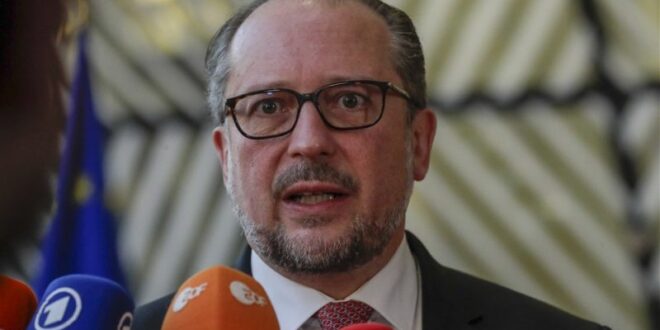Russian delegates should not be excluded from participating in the upcoming OSCE assembly meeting in Vienna, said Austrian Foreign Minister Alexander Schallenberg after parliamentarians from 20 OSCE countries urged his government last week to bar Russian diplomats from attending.
The meeting will be held in Vienna on 23-24 February, exactly one year after Russia invaded Ukraine. All members of the Russian delegation announced so far are on sanction lists of the European Union according to Der Standard.
As the host to the OSCE headquarters, Austria must allow all delegates from all participating states to enter Austria, said Schallenberg who also regretted the meeting’s planned date as “a very unfortunate one”.
“But at the same time, we must not disregard the fact that we need platforms. The OSCE has never been an organisation of like-minded people,” he told the Austrian Public Broadcast’s show Zeit im Bild in an interview on Sunday evening.
Every relationship and every conversation with Russia would be difficult, “but we have to stay in dialogue”, he said. “Because at some point, hopefully, diplomacy will be given space again.”
Among the countries that called on Austria to prevent Russian officials from entering the country, Lithuania even threatened to boycott the meeting if Austria were not to even consider the call.
“Our delegation will probably not be able to go there and sit in the same room with the people who should be standing before a special military tribunal because those people are directly responsible for initiating the war,” the leader of the Lithuanian delegation Vilija Aleknaitė-Abramikienė told reporters at the Lithuanian parliament on Friday, LRT reported.
Speaking about Lithuania’s announced boycott, Schallenberg said during the Zeit im Bild interview that it would be “a pity” for the OSCE parliamentary assembly, which brings together parliamentarians from the OSCE countries, to be so “emotionally overloaded” while the OSCE ambassadors’ meeting would take place every Tuesday in the Hofburg palace in Vienna.
It would also be of value to show how isolated Russia had become, Schallenberg added, as he made clear there is “no return to the status quo ante” with someone like President Vladimir Putin.
Still, it would be important that the Austrian nation distinguishes “between Putin, his system and his henchmen and Russia, its history, its culture and also its people”, he added.
The OSCE is currently struggling to get its 2023 budget approved due to a lack of cooperation from Russia. This has left the organisation struggling with its mandate and to make key decisions such as who will hold future rotating chairmanships.
In addition, there is no mechanism within the OSCE to remove Russia or place limitations on them, meaning the requests for banning Russian officials seem unlikely to be heard.
 Eurasia Press & News
Eurasia Press & News




